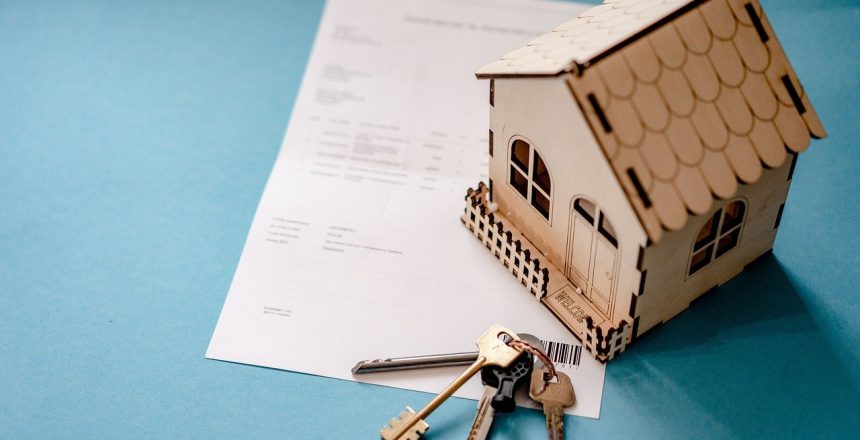Moving – it’s a word that can stir up a whirlwind of emotions, from excitement to anxiety. Whether you’re relocating to a new city, a different state, or even just across town, one burning question lingers on your mind: How long does it take to move?
In this blog post, we’re diving deep into the intricacies of the moving process, shedding light on the factors that influence its duration, and providing you with invaluable tips to streamline your move and make it as effortless as possible.
Key Takeaways
- The time it takes to move varies based on factors like house size, whether it’s a local or long-distance move, and the time of year.
- Weather-related issues, logistical problems, and legal documentation can lead to unexpected delays during the moving process.
- To streamline your move, consider decluttering, hiring professional movers, efficient packing, and careful organization during both the move and unpacking process.
How Long Does it Take to Move?
Local Moves
- Preparation Phase
- Sorting and decluttering belongings (1-2 weeks)
- Gathering packing supplies (1-2 days)
- Creating a moving checklist (1-2 days)
- Moving Day
- Loading belongings onto the moving truck (2-4 hours)
- Transporting to the new location (within the day)
- Unloading and basic furniture arrangement (2-4 hours)
- Unpacking and Settling In
- Unpacking essential items first (1-2 days)
- Assembling furniture (1 day)
- Organizing rooms and utilities (1-2 days)
Long- Distance Moves
- Planning and Coordination
- Researching long-distance movers and getting quotes (2-4 weeks)
- Creating a detailed moving plan (1-2 weeks)
- Notifying necessary parties (2-4 weeks before)
- Transit Time
- Transit time can vary greatly depending on distance:
- Cross-country moves (5-14 days)
- Coast-to-coast moves (7-21 days)
- International moves (varies significantly)
- Unloading and Settling In
- Unloading belongings at the new destination (1 day)
- Completing necessary paperwork (1-2 days)
- Unpacking and settling into the new home (1-2 weeks)
How Long Does it Take to Move Based on House Size?
| Number of Bedrooms | Square Foot | Average Move Time |
| Studio | Up to 400 sq ft | 2 Hours |
| 1 Bedroom | 400-600 sq ft | 2-3 Hours |
| 2 Bedrooms | 600-800 sq ft | 3-5 Hours |
| 3 Bedrooms | 800-1,300 sq ft | 5-7 Hours |
| 4 Bedrooms | 1,300-2,000 sq ft | 6-8 Hours |
| 5 Bedrooms | 2,000 sq ft and above | 7-9 Hours |
Time of Year
The time of year can significantly impact moving timelines due to various factors, including weather conditions and demand for moving services.
- Peak Moving Season (Summer)
- Preparation Phase (3-4 weeks)
- Moving Day (1-2 days)
- Unpacking and Settling In (2-3 weeks)
- Off-Peak Season (Fall, Winter, Spring)
- Preparation Phase (2-3 weeks)
- Moving Day (1-2 days)
- Unpacking and Settling In (2-4 weeks)
Note: It’s essential to consider the specific climate and local weather conditions of your area, as they may affect these estimates.
Tips for Efficient Moving
Decluttering and Packing Strategies
- Decluttering (2-3 days): Start by sorting and deciding what to keep, donate, or discard.
- Efficient Packing (1-2 weeks): Use proper packing materials and methods to ensure items are securely packed.
Hiring Professional Movers
- Researching and Booking (2-4 weeks before): Find reputable moving companies and secure a booking.
- Pre-Move Preparation (1-2 weeks): Communicate with movers, provide instructions, and prepare your belongings.
Labeling and Organization
- Labeling (1-2 days before): Clearly label boxes with their contents and the room they should go to.
- Room Organization (1 day before): Organize your belongings by room for efficient unpacking.
Utilizing Moving Services
- Packing Services (1-2 days before): Consider hiring professionals to pack your belongings.
- Storage Solutions (if necessary): Explore temporary storage options for items not immediately needed.
Unexpected Delays or Issues that can Affect Moving
Weather-related Issues
Mother Nature can be both unpredictable and unrelenting, and her whims can significantly impact your moving timeline. Severe weather conditions such as heavy rain, snowstorms, or extreme heat can pose substantial challenges during your move.
Rain-soaked cardboard boxes, icy roads, and sweltering temperatures can slow down the process and potentially damage your belongings. It’s essential to stay informed about the weather forecast for your moving day and have contingency plans in place to mitigate any weather-related delays.
Logistic Problems
Moving involves intricate logistics, and even the most meticulously planned relocations can encounter unforeseen hiccups. These logistical issues may include problems with the moving truck, road closures, traffic jams, or unexpected detours.
To counteract these challenges, working closely with a reputable moving company with experience in navigating these issues can be a game-changer. Additionally, having a well-thought-out backup plan can help keep your move on track if logistical hurdles arise.
Legal and Documentation
Legal and documentation matters can throw a wrench into your moving timeline, particularly if you’re moving across state lines or internationally. Dealing with the required permits, visas, customs paperwork, and compliance with local regulations can be time-consuming and complex.
Failure to address these legal aspects can result in delays and complications, so it’s crucial to research and prepare well in advance. Hiring a professional who specializes in handling these matters can save you time and ensure a smoother transition.
Navigating these unexpected delays and issues can be challenging, but being prepared and proactive is key to minimizing their impact on your move. As we delve deeper into understanding the factors that influence the duration of your move, keep in mind that forewarned is forearmed, and a well-prepared mover is a mover who can overcome these obstacles with confidence.
Let Us Handle Your Auto Transport Needs
Mercury Auto Transport is an auto transport broker that presents offers from FMCSA (Federal Motor Carrier and Safety Administration) licensed and insured carriers. We have access to a wide range of car transporters through National Dispatch Boards, and together with you, we can often strategize and negotiate far better rates.
Get a free quote today or speak with one of our professional auto transport representatives and experience seamless and reliable auto transport services.
Post Move Unpacking Tips
- Prioritize Essential Items: Unpack and set up the essentials first, such as toiletries, bedding, and kitchen essentials. This ensures you can function comfortably from day one.
- Create a Unpacking Plan: Develop a systematic plan for unpacking. Start with one room at a time, focusing on high-traffic areas like the kitchen and living room.
- Unpack Room by Room: Tackle one room completely before moving on to the next. This approach provides a sense of accomplishment and keeps you organized.
- Label Boxes Clearly: Boxes should be labeled with their contents and the room they belong to. This makes it easier to locate items during unpacking.
- Dispose of Packing Materials: As you unpack, break down and dispose of packing materials like cardboard boxes and packing paper. Recycling or storing these can help declutter your new space.
- Organize as You Go: As you unpack, organize items as you place them in their designated spaces. Use storage solutions like bins, shelves, and organizers to keep things tidy.
- Evaluate Your Belongings: Take the opportunity to assess your possessions as you unpack. Consider whether you still need everything, and set aside items for donation or resale.
- Safety First: If you have children or pets, ensure that potentially hazardous items (e.g., cleaning supplies, sharp objects) are stored safely out of reach.
- Decorate and Personalize: Make your new space feel like home by decorating and adding personal touches. Hang artwork, arrange furniture, and add any decorative elements that bring comfort and warmth.
- Take Breaks: Unpacking can be physically and mentally exhausting. Take breaks, stay hydrated, and pace yourself to avoid burnout.
- Ask for Help: Enlist the help of family and friends if possible. It can make the process more enjoyable and efficient.
- Set Realistic Timelines: Understand that unpacking can take time, and it’s okay to take a few days or even weeks to get fully settled.
- Celebrate Milestones: Celebrate your progress as you unpack each room or reach specific unpacking milestones. It can help motivate you to keep going.
Stay Organized for the Long Term: Once everything is unpacked, maintain organization by implementing good habits and storage solutions to prevent clutter from building up again.
Conclusion
While unexpected challenges like weather, logistics, and legalities may test your move, remember that preparation and proactive planning are your greatest allies. As you transition to your new abode, embrace the post-move phase with thoughtful unpacking, prioritizing essentials, and creating a space that reflects your unique personality.
With each box unpacked and every room transformed, you’re not just changing your address; you’re crafting a fresh chapter in the story of your life. Welcome home to the possibilities that await.
Frequently Asked Questions About How Long Does it Take to Move
Why is moving so stressful?
Moving is stressful due to the emotional strain of leaving familiar surroundings, coupled with the physical demands and logistical challenges.
How can I make my moving process faster?
To make your move faster, plan meticulously, declutter before packing, hire professional movers, and prioritize efficient organization.
What are the hardest things to move?
The hardest things to move typically include large furniture, delicate artworks, appliances, and heavy gym equipment, often requiring specialized handling.
What is the most challenging part of moving?
The most challenging part of moving varies but often involves dealing with the emotional toll of leaving, as well as the logistical aspects like coordinating timelines and unexpected issues.
How much money do I need before moving?
The amount of money needed before moving varies depending on factors like distance, household size, and specific circumstances, so creating a detailed budget is essential for preparation.
Let Us Handle Your Auto Transport Needs
Mercury Auto Transport is an auto transport broker that presents offers from FMCSA (Federal Motor Carrier and Safety Administration) licensed and insured carriers. We have access to a wide range of car transporters through National Dispatch Boards, and together with you, we can often strategize and negotiate far better rates.
Get a free quote today or speak with one of our professional auto transport representatives and experience seamless and reliable auto transport services.






